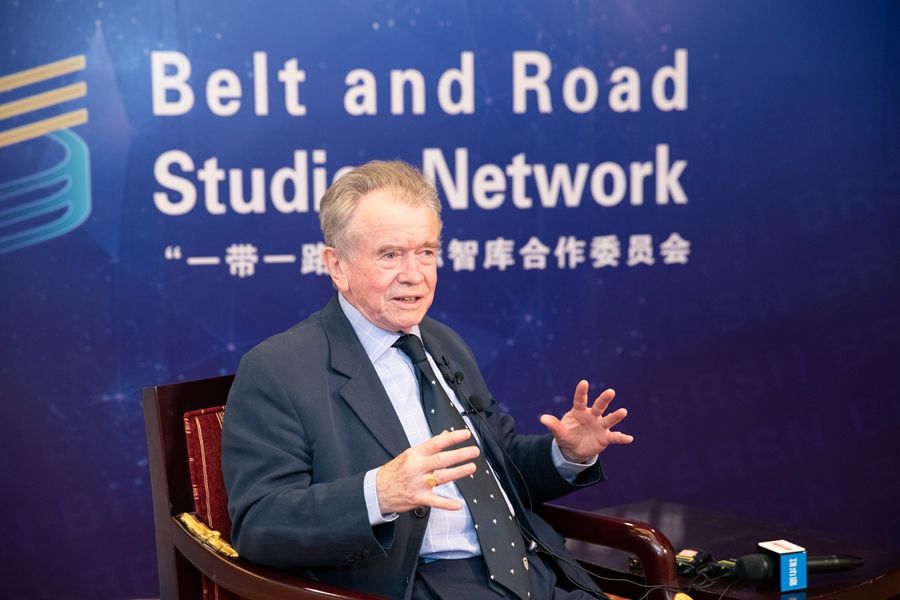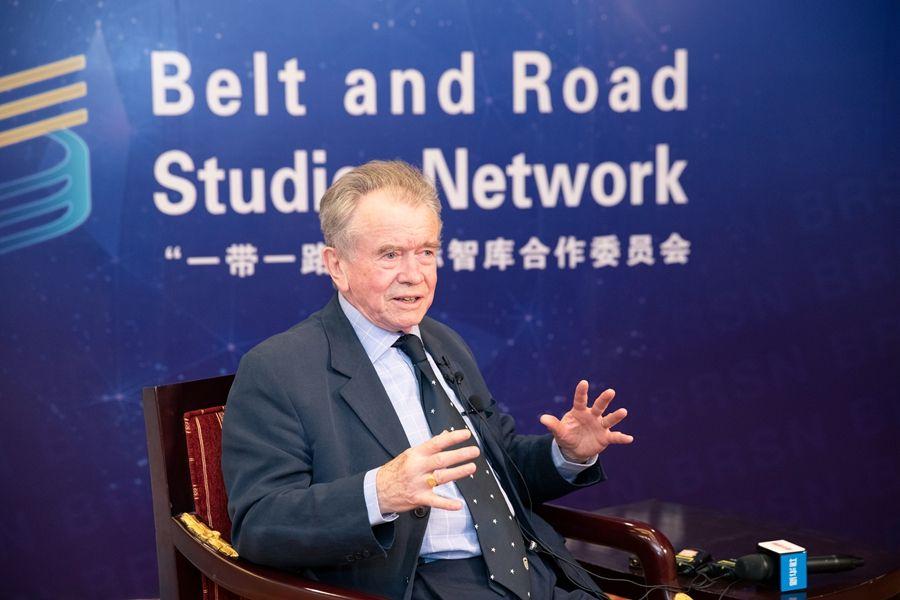
British sociologist and fellow of the British Academy of Social Sciences Martin Albrow accepts an interview with Xinhuanet in Beijing, capital of China, April 24, 2019. (Xinhuanet/Guo Xiaotian)
BEIJING, April 25 (Xinhuanet) -- Eyeing an interlocking set of projects under the Belt and Road Initiative spanning Europe, Asia, Africa, renowned British sociologist and fellow of the British Academy of Social Sciences Martin Albrow said Wednesday that this initiative "brings the world together".
Belt and Road connections let the world join together and set goals and create a project which is to mutual advantage, Albrow told Xinhuanet in an interview on the sideline of the Belt and Road Studies Network First Annual Meeting, which was held on the eve of the second Belt and Road Forum for International Cooperation in Beijing.
In his view, the Belt and Road Initiative is "open to everyone". "That’s an offer to the whole world to join," Albrow said.
He mentioned Italy, which entered into an memorandum of understanding with China last month.
"Nobody forced Italy to do that. It was entirely a free decision on the part of the Italians that this was to their mutual advantage," Albrow noted.
"This is one of the very special features of Belt and Road that it brings countries together in cooperative arrangements around projects," he said.
He also pointed out another feature of the initiative, which, in his words, is "inclusive".
The Belt and Road Initiative is not a club, but a set of relationships, a set of linked projects connected with each other, he continued.
"In that sense, it's very inclusive, much closer to being a community than to being an organization," he added.
Albrow also touched on relations between the Belt and Road Initiative and the community of a shared future for the mankind, which are integrated in his eyes.
"The Belt and Road Initiative takes us towards that shared human future, because that shared human future will have to be on the basis of doing things together, to solve global issues," he added, stressing "they're not gonna be done by single countries separately".




 A single purchase
A single purchase









